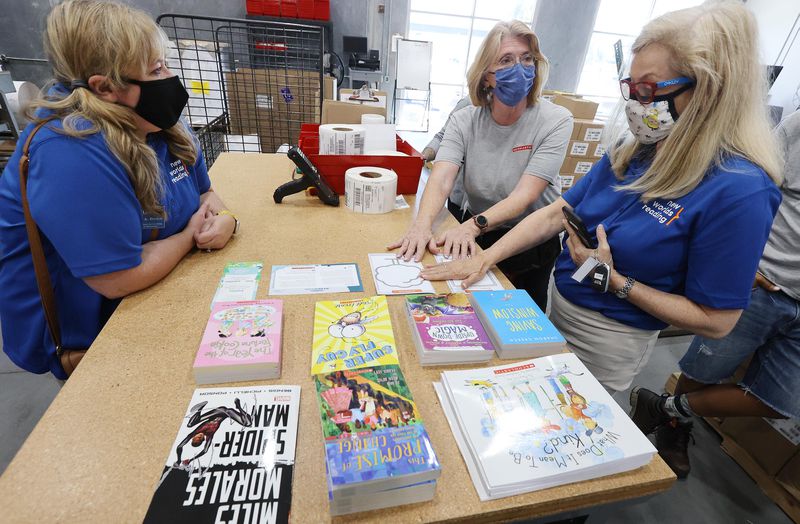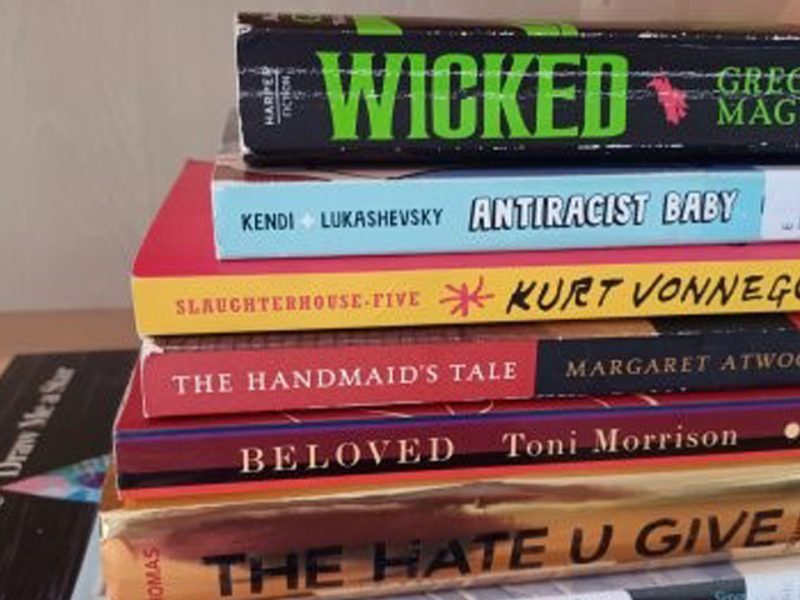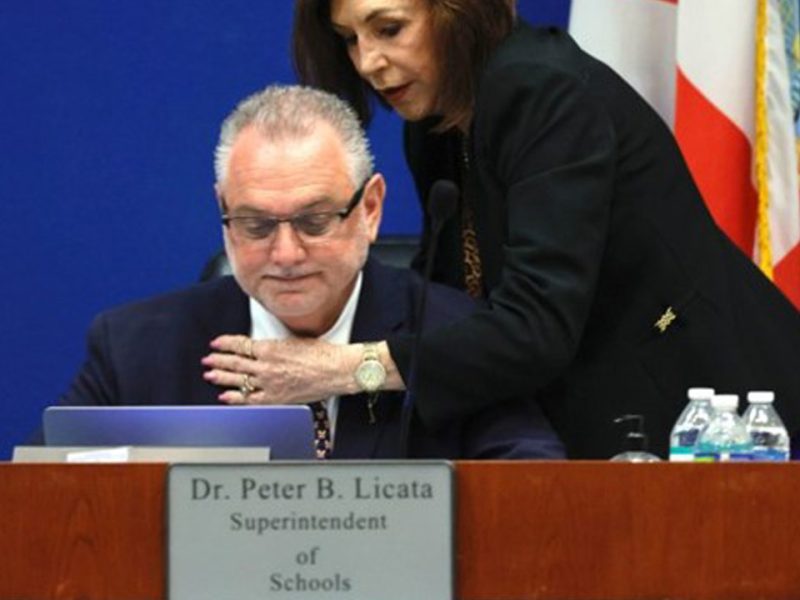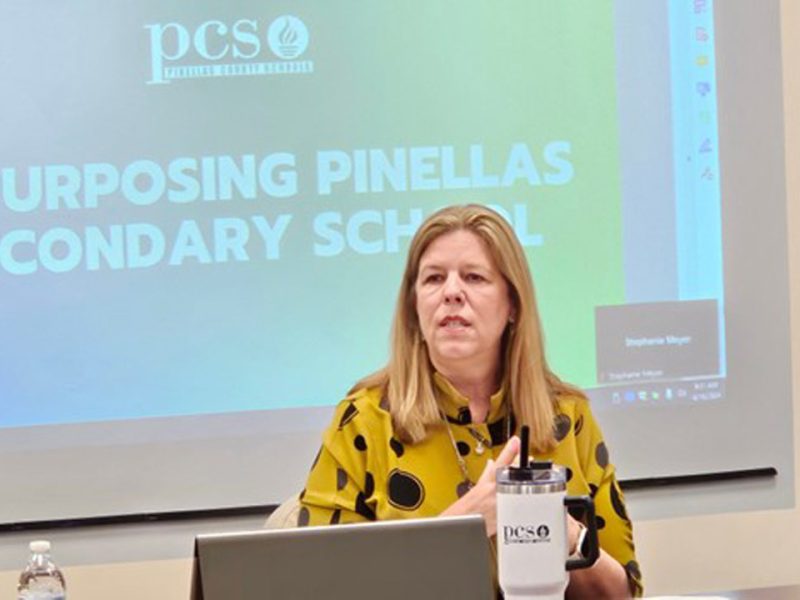
Florida’s free book program to improve reading enrolls 100,000 kids so far
Orlando Sentinel | By Leslie Postal | March 31, 2022
Starting in December, Florida has shipped nearly 336,000 free books to elementary school students, kicking off a program that aims to deliver a new book every month to youngsters who need to boost reading skills.
More than 100,000 students so far are enrolled in the state’s New Worlds Reading Initiative, and officials hope thousands more sign up. The program mails nine free books a year to public school students in kindergarten to fifth grade with a “substantial reading deficiency.” More than 500,000 Florida students are likely eligible, officials said.
Children in the initiative get to pick topics that interest them and then books that match those interests and their grade levels are mailed to their homes. Their parents get worksheets with suggested activities to encourage reading.
“We know what we need to do to support kids as readers. This is part of that puzzle,” said Shaunte Duggins, assistant director of the initiative at the University of Florida’s Lastinger Center for Learning, which administers the New Worlds program.
The $200 million effort, approved by the Florida Legislature last year, is similar to book-give-away programs in other states and countries. The programs aim to both prompt more reading at home and help build home libraries for families who cannot afford to buy books on their own.
Florida’s effort comes after the COVID-19 pandemic upended and disrupted education for many children, leaving more struggling to master reading in the early grades. Scores on Florida state reading tests dropped last year, for example, with 53% of third-to-fifth graders passing in 2021 compared to 57% in 2019.
“The timing for this is absolutely right,” said Peter Warwick, CEO of Scholastic, the book company tapped to distribute the books. “It’s time is now.”
Scholastic, known for its school book clubs and fairs, sent the first book shipments out in December from a company warehouse in Missouri. But now the books, whether heading to Pensacola, Miami or Orlando, are being packaged and shipped from a new Scholastic facility in Sanford set up to manage the New Worlds initiative.
“We’ve never done anything on this scale,” Warwick said, but it is a perfect fit for the company. “We’re all about reading, and we’re all about literacy.”
Florida House Speaker Chris Sprowls proposed the program in early 2021.
Florida schools made “amazing strides” in reading instruction in recent decades, but still too many students struggle with that key academic skill, jeopardizing their ability to finish high school, Sprowls said at press conference last year announcing the new initiative.
“We all believe that access to books is something that can change a child’s life,” he said. “You give a child a book and their face lights up.”
Danielle Brown, a Sanford mother who now works at the new Scholastic warehouse, expects her daughters, ages 7 and 11, will be thrilled when their book packages arrive. She recently signed them up after their school, Bentley Elementary School, told her they were eligible.
“Kids don’t get mail,” Brown said, so monthly book packages will be a treat.
Her older daughter, in fifth grade, has found reading hard and stays after school for tutoring. “It is a struggle with COVID going on. I do believe it has kind of put her behind a little bit,” Brown said.
A production clerk at the new Scholastic warehouse, Brown said she gets to peek at the books and the activity pages they are packaging — and she is impressed. The suggested activities look like they will help students comprehend what they are reading, Brown said, and she likes that the books are geared to the students’ reading levels.
At the public library, Brown said there are so many choices, and she finds it hard to know which books would be best for her daughters.
Duggins, the UF official, said the book-delivery program will provide concrete ways for parents to help their kids with reading.
“They know the child is struggling. But what’s next?” she said.
Book give-away programs proved to be a “valuable investment,” improving early literacy skills among participants at a relatively low cost per child, according to a 2020 analysis sponsored in part by the Dutch Reading Association that reviewed multiple studies on such programs.
A three-year study done in Florida from 2001 to 2004 found that low-income students allowed to pick a dozen free books at the start of the summer lost fewer reading skills over the break and did better on state tests than similar classmates who did not take part in the program.
“Ensuring that books are available to any child at any time of the year will be a good first step in enhancing the reading achievement of low-income students,” wrote researchers Richard Allington and Anne McGill-Franzen, who worked at UF when they conducted the summer book give-away experiment but wrote about it later as professors at the University of Tennessee.
The Florida Legislature approved the New World’s program last year after unanimous votes in both chambers, and Gov. Ron DeSantis then signed it into law. The state earmarked nearly $200 million for the program.
Sprowls announced on Tuesday that the corporations had agreed to donate another $50 million to the book-delivery effort. The GOP leader spoke at a New World’s program at the Central Florida Zoo, held to celebrate enrollment topping 100,000 and to encourage more families to sign up.
Families who sign up now will still get nine books but may get more than one per month to make sure their children get all their titles by the last delivery in June. Families can check eligibility requirements and enroll their children at: newworldsreading.com





